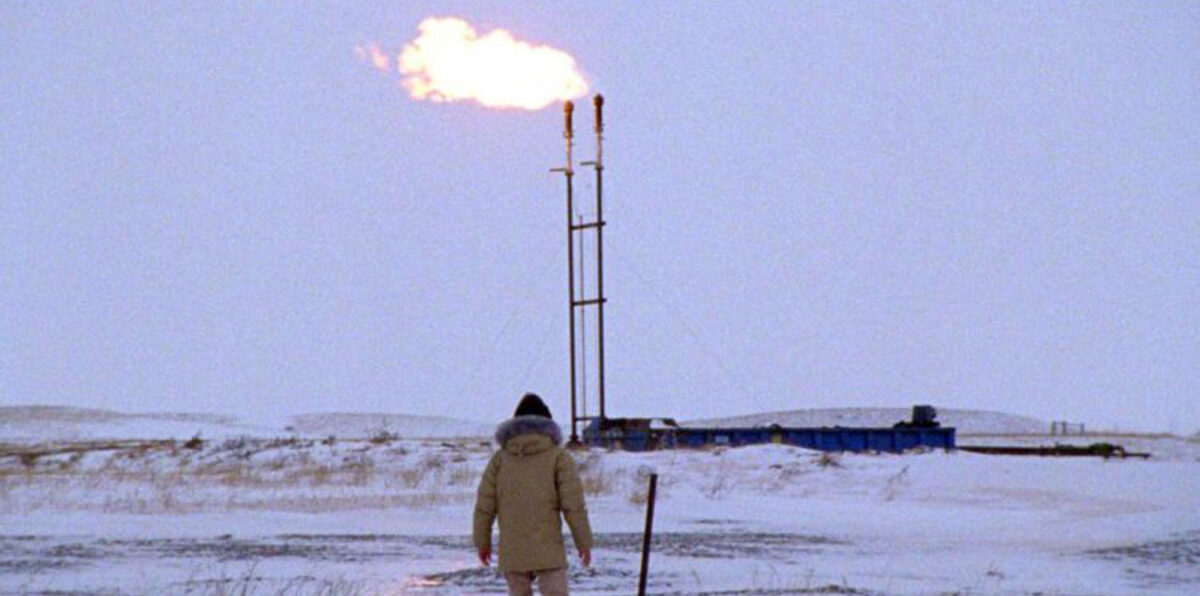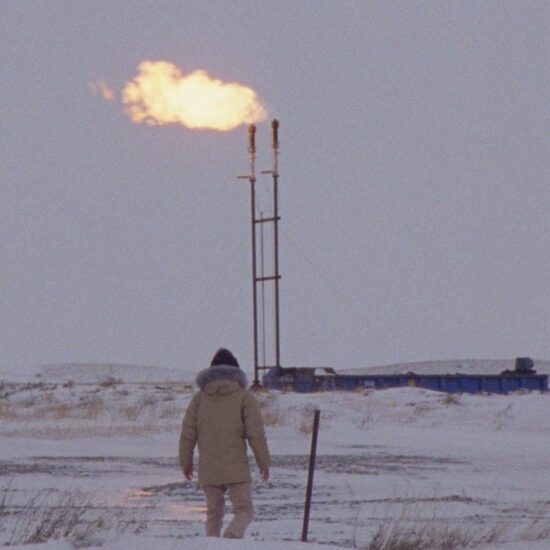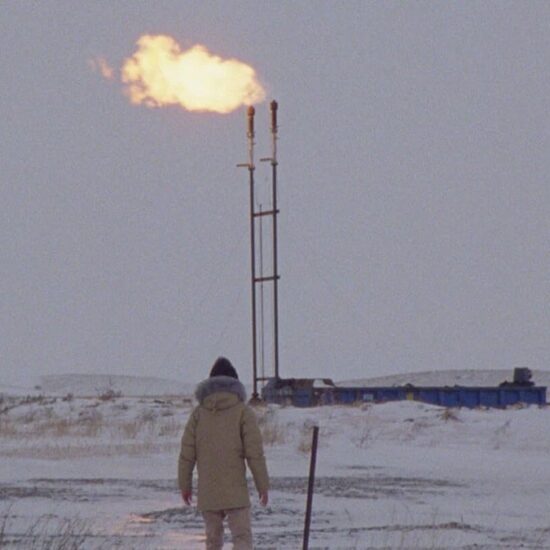
Global warming. Climate change. Glaciers melting down. Temperatures rising. Wildfires. Pollution. Deforestation. Rapid urbanization. These environmental concerns are currently in talks across channels and podiums. Activism to promote ecological preservation and conservation is on the rise, wherein the likes of Greta Thunberg have taken to protests and backlashes against industrial policies. Nations meet to discuss the issue and pledge to reduce emissions and fuel consumption. Laws are made to take on-road traffic on an electric route.
But what good have these years of talks and activism brought? What change have they inspired in the general public? What tangible impact has everyone brought to the world’s climate front altogether? Tackling this worrisome challenge is director Daniel Goldhaber’s second feature, How To Blow Up A Pipeline. Screenwriters Ariela Barer, Jordan Sjol, and Goldhaber depict how an unusual and more striking strategy to bring light to such discussions may be more pragmatic than just words.
How To Blow Up A Pipeline depicts a retaliation against an unserviceable response to global environmental preservation cries. And it takes a bunch of despaired commoners to come together to have the authorities hear their pleas with a literal bang. The film borrows from Andreas Malm’s book of the same name, but to call it an adaptation would not be proper. Malm’s work is academic, a non-fiction documentation and argument that sabotage and property destruction could be a logical way of furthering environmental and climate protection. It’s a call back to Snowpiercer, who argued that sometimes, a hard reset to the world might be the only manner in which to preserve life. This tries to bring forth a message along the same lines – it’s time for a new kind of environmental justice.
“…despaired commoners to come together to have the authorities hear their pleas with a literal bang.”
But Goldhaber adds a whole lot of drama to Malm’s non-fiction work by giving it a fictional but quite relatable plot with a substantial focus on the characters. The story focuses on a dynamic group of individuals led by friends Xochitl (Ariela Barer) and Theo (Sasha Lane). The group comprises individuals who have lost to the climate crisis. Some have lost loved ones, others have lost land or even their way of life. As global activism falls on deaf ears, Xochitl (while it’s hard to point a lead of the movie, if you got to, it will be her) comes up with a plan to blow up an oil pipeline to send out a message.
While introducing the characters, Goldhaber gives his story an emotional and political angle. At first, it feels like a rise of vigilantism against climate destruction caused by corporate greed and consumerism. But the filmmaker and cinematographer Tehilla De Castro revitalize this significant motive into a nicely choreographed and intense heist. That’s where How To Blow Up A Pipeline bridges the gap between being an allegory and an entertaining thriller.
The narrative takes inspiration from Reservoir Dogs. The film goes back and forth, intercutting to introduce you to all the characters, preceded by a title card that mentions each of their names. Goldhaber might not have intentionally made it an ode to Tarantino, but those vibes are felt increasingly as pressure to accomplish the next-to-impossible task starts agonizing the group.














